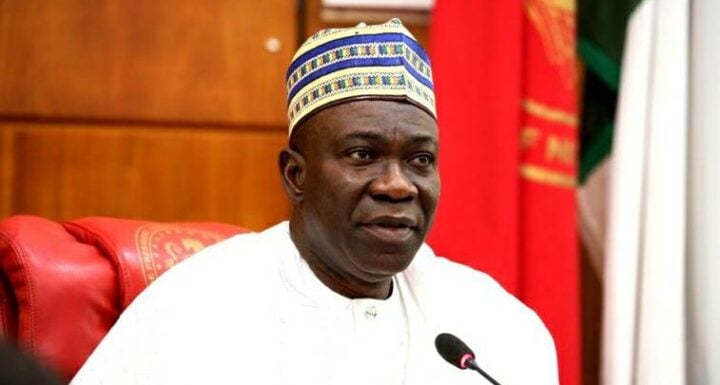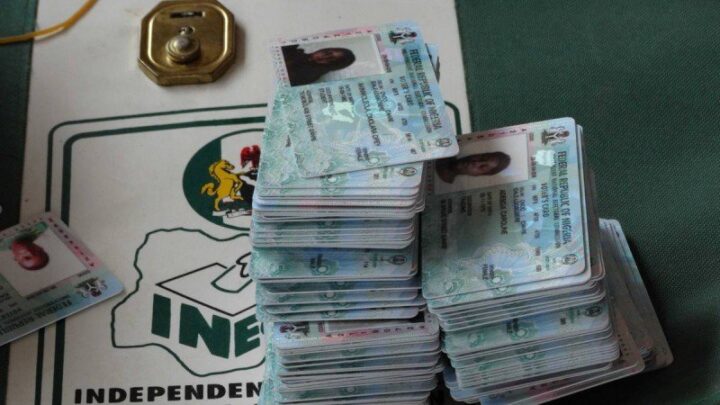Nigerians were recently hit with news of the arrest of former deputy senate president, Senator Ike Ekweremadu, and his wife who were charged to the Uxbridge Magistrate Court in the United Kingdom for conspiracy to facilitate the travel of another person for the purpose of organ harvesting.
Initial reports suggested that the Ekweremadus took an unsuspecting minor, one David Nwamini Ukpo, to the UK and tried to harvest his organs for their daughter’s badly-needed kidney transplant.
Transplants are only done after compatibility is established and when this was unavailable, the young man was no longer required to act as a donor and things got awkward as he went to the UK authorities and claimed to be a minor trafficked for organ harvesting without his consent.
These are serious allegations and the UK authorities responded by arresting the Ekweremadus and investigating the issue while denying them bail.
Advertisement
However, while David reportedly told the UK police that he was only 15, the Ekweremadus claim that he is a 22-year-old who came willingly and gave consent. To buttress their argument, the Ekweremadus proceeded to a Nigerian court to compel the Nigerian Identity Management Commission (NIMC) to produce David’s national identification number (NIN) to help guide the investigation and court process.
The comptroller general of Nigeria Immigration Service (NIS), Isah Idris, has said that their official records have David Ukpo Nwamini as a 22-year-old who supplied the NIS with a birth certificate issued by the National Population Commission, showing October 12, 2000, as his date of birth. Isah’s verbal statement won’t pass as evidence to a UK court so the information has to be officially released to the UK authorities.
While proving that David was an adult would help the Ekweremadus, it wouldn’t necessarily get them off the hook if proven that they had offered to pay him for the kidney since that is frowned at in some instances. Paying a donor for an organ, and moving them to get the transplant done is a crime under the UK’s Human Tissue Act (HTA) 2004 which seeks to regulate activities concerning the removal, storage, use and disposal of human tissue.
Advertisement
The World Health Organisation (WHO) disapproves of illegal organ trading and a recent Global Financial Integrity report estimated that the illegal organ trade is worth between $600 million and $1.2 billion yearly. The kidney is the highest in-demand organ in the market going for as high as $150,000 in some instances. This makes it a valuable niche for illegal organ trade activity, making up to 75% of the global illicit organ trade that sometimes happens without the donor’s consent. It is a thriving trade with 2,500 kidneys purchased in Pakistan in 2007 via the legal organ trade market.
While many Nigerians have expressed anger over the Ekweremadus’ story, it would be more beneficial to look at the big picture and reflect soberly on the implications for the average Nigerian. If kidney disease has troubled the wealthy elite this much, how are average Nigerians dealing with the situation?
How can we reduce the average cost of managing the ailment? What is the present condition of the organ waiting list (which doesn’t actually exist) and what can be done to make it capable of helping as many people as possible? We have a terrible healthcare situation that will get worse if we don’t commit to improving it.
Like a lot of other countries, Nigeria is facing a rise in the prevalence of Chronic Kidney Disease (CKD). Factors like hypertension, diabetes and chronic infections such as Hepatitis B and C, Human Immuno-deficiency Virus (HIV), Sickle Cell anaemia, bleaching creams, coupled with chronic glomerulonephritis and interstitial which are due to the high rate of bacterial, parasitic, and viral infections, have been pinpointed as major causes of Chronic Kidney Disease (CKD) in Nigeria.
Advertisement
Some estimates say that as much as 10% of the Nigerian adult population has some form of kidney disease partly because black African origin comes with an Apolipoprotein L1 gene(APOL1) that leaves us four times more likely to get kidney disease than people of other races.
Nigeria has fewer than 5000 people actually undergoing dialysis treatments while having at least 20,000 people added yearly to the number of those who need dialysis treatment. This means that 15,000 people are basically left to just die off slowly and painfully.
In essence, instead of getting angry at the Ekweremadus, we need to actively work on improving our healthcare system. Anger only drives us to pound on things which we’ve been doing for well over half a century and the results are worth pondering on. It’s time to explore a different emotional path that lends itself better to progressive actions. Anger has failed us.
Nwanze is a partner at SBM Intelligence
Advertisement
Views expressed by contributors are strictly personal and not of TheCable.
Add a comment







